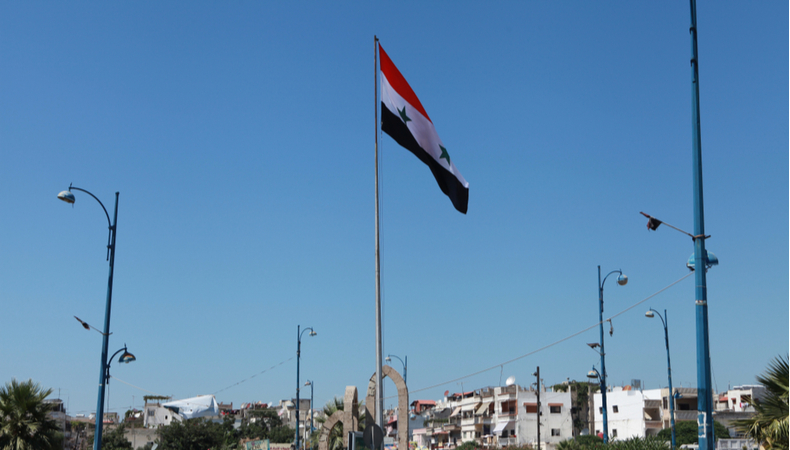Despite the sanctions, more and more European countries are reopening their embassies in Syria

Last May, when Syrian President Bashar al-Assad won a fourth term with 95.1% of the vote, the European Union and other Western powers quickly denounced the election as a fraud. “The elections that took place in Syria on May 26 did not meet any of the criteria for a genuinely democratic vote,” said High Representative Josep Borrell in a statement.
“They cannot lead to any measure of international normalization with the Syrian regime.” Brussels has adopted sanctions against the Assad regime since the start of the ten-year conflict in 2011. Sanctions doubled as the war progressed, killing half a million people and drove another 11 million from their homes. But Brussels’ firm stance towards the Assad regime contrasts with recent moves by individual EU member states, some of which are beginning to reopen their respective embassies in Damascus.
Since 2012, only the Czech Republic had kept its representation open in the war-torn country, while others had severed ties with Damascus and evacuated their respective diplomatic posts. However, since the Assad government has regained control of the majority of the country with the support of Moscow and Tehran, some EU countries seem tempted to restore diplomatic relations there.
At least five member states of the European Union currently have a diplomatic mission operating in the Middle Eastern country. Most EU nations have their embassies in Syria still evacuated, and diplomats are working from neighboring Lebanon and visiting Syria from time to time. Some Member States still maintain a strict policy on this: no embassy, no contact with the regime.But a growing number of EU states have been strengthening their diplomatic presence in the country in recent months. Bulgaria has permanent diplomatic representation in Syria through its embassy in Damascus. According to the embassy’s official website, the country’s chargé d’affaires is Anatoli Vasilev Deshev.It is unclear when the embassy reopened after the initial closure in 2012.
Cyprus Chargé d’affaires in Damascus, Sevag Avedissian, said the Nicosia Embassy in Syria is in the process of resuming operations and will reopen in the coming weeks. He added that the country had had a permanent diplomatic presence in a hotel rather than its premises since mid-October last year.He insisted that the country did not appoint an ambassador to Syria but a charge d’affaires without presenting credentials to Assad in line with EU policy. The bloc does not recognize Assad as a legitimate head of state, and therefore, the ambassadors of the EU countries would not present him with their credentials.
“We left Damascus for security reasons, not because we wanted to suspend diplomatic relations,” the diplomat explained, adding that Cypriot diplomats continued to deal with relations with Syria from Lebanon during the war.A charge d’affaires and consul took office to the Hungarian embassy in Damascus last year, and the embassy is open but with limited activities. Also, the Syrian Foreign Ministry website lists Austriaamong the countries with a diplomatic mission to Damascus. But the Austrian Foreign Ministry clarified that all embassy activities are still carried out from Beirut, where staff has moved since 2012.
Greece has instead reopened its embassy in Damascus.Sanctions in place for a decade include travel bans and asset freezes against Assad and other senior political and military officials. Currently, 283 individuals and 70 entities in Syria are on the Union sanctions list.Brussels was adamant that any form of normalization with the Assad regime was out of the question.
The European Parliament reiterated this position in a recent resolution adopted in March. “As long as there is no fundamental progress on the ground with a clear, sustained, and credible commitment to an inclusive political process, MEPs oppose any normalization of diplomatic relations with the Syrian regime,” the text reads.Despite its firm stance against the Syrian regime, the EU still maintains lower-level diplomatic contacts with Syria.




